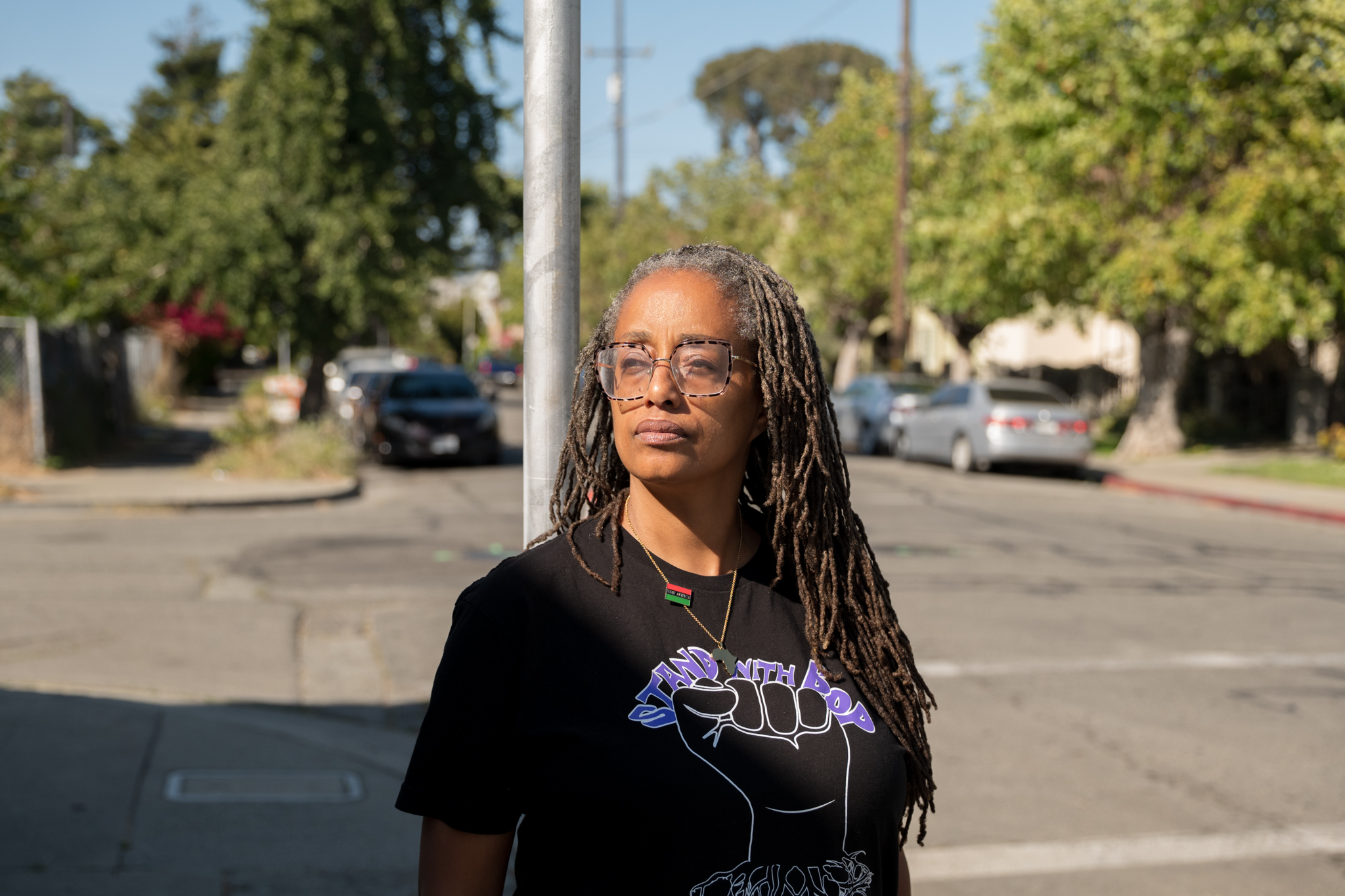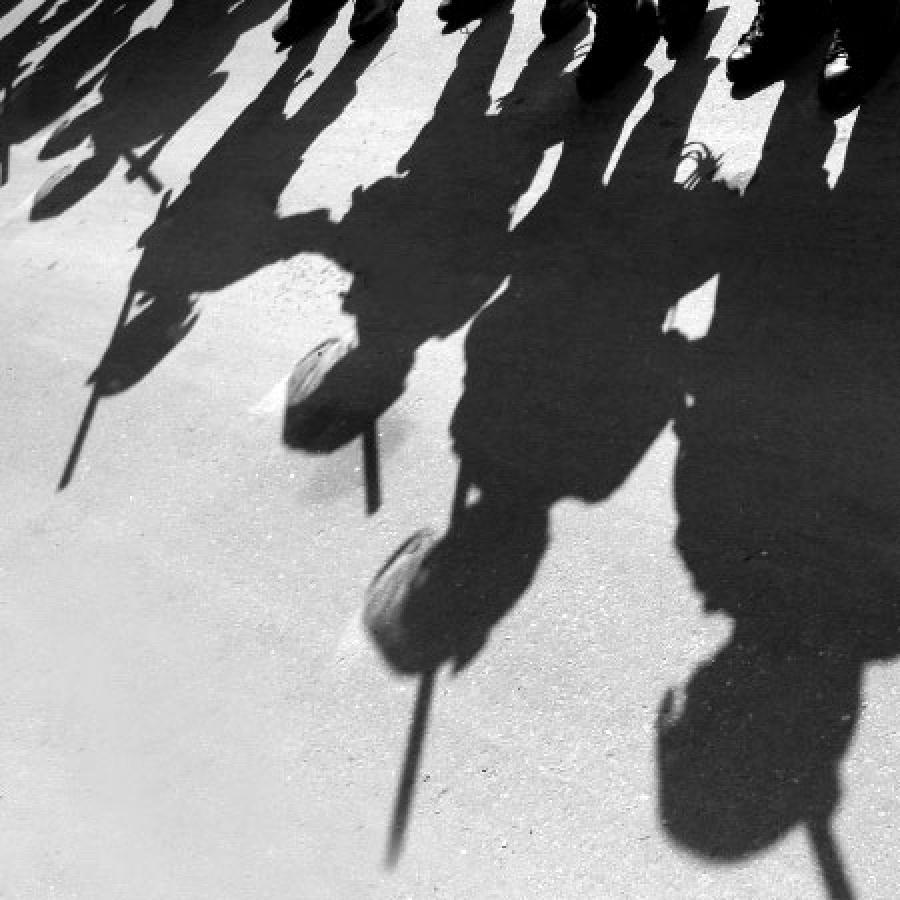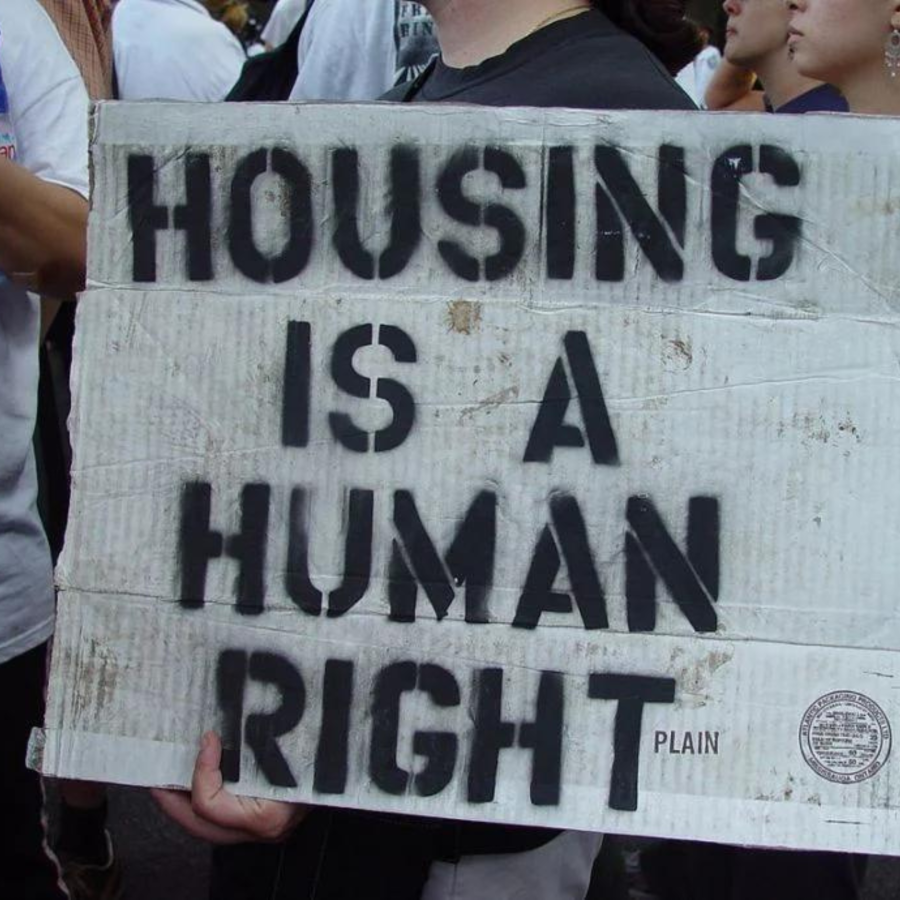Meet Falilah Bilal— A drama therapist who credits intervention from the Anti Police-Terror Project for supporting her during her experiences with law enforcement

Falilah Bilal (she/they), moved to Oakland from the East Coast thirty years ago. A drama therapist and long time nonprofit leader, her work focuses on empowering people that have experienced sexual assault and gender-based violence. Falilah views her drama therapy practice as a tool for liberation, health, sustainability, community—and most importantly, for fun and joy. Most recently, Falilah served as the Deputy Director at the Black Organizing Project and previously as the executive director of a program called Girl Source. Falilah’s deep commitment to community has been part of her identity from a young age, as she was raised in the Black Power Movement.
Falilah has lived an expansive life with her two children in northern California over the past three decades. During this time, she and her family have also unfortunately had two experiences with law enforcement. These interactions resulted in safe and humane treatment of her loved ones thanks to the Anti Police-Terror Project (APTP).
APTP is a “Black-led, multi-racial, intergenerational coalition that seeks to build a replicable and sustainable model to eradicate police terror in communities of color.” In addition to its MH First program, the organization documents police abuses and connects communities with resources and spaces of healing in both Oakland and Sacramento. MH First is a community-based alternative to 911 that responds to mental health crises, substance use situations, and domestic violence incidents without involving police.
During one incident, Falilah and her partner, who was struggling with alcoholism and houselessness, had a conflict that escalated when, in an act of paranoia, he called the police to Falilah’s home. As soon as her partner contacted the police department, she reached out to MH First, a program she knew about because of her close relationship to APTP’s founders. Falilah understood the importance of having a third-party advocate present that would have her and her partner’s safety in mind when the police arrived. Falilah described the experience: “I felt empowered the entire time, even though I was facing a crisis. [APTP] weren't trying to influence me on what to do. They were like, ‘you have rights, and you have choice, so does your partner.’”
MH First responders ensured that the police and EMT services moved their vehicles out of the line of sight to avoid triggering Falilah’s partner. They also made sure that Falilah had the space to make crucial decisions about the safety of her family and herself, without the influence of the officers and her friends who were all advocating to have her partner arrested since he was an agitator in this conflict.
APTP saw the humanity in Falilah and her partner, which allowed her to have grace for him, “Having people from the community that love you, and therefore love the other person [in conflict] is super important.” She felt that even though she was in a hard situation, having crisis experts that were still going to value his humanity was important because even in that moment, he was still “her person.” After the initial interaction with the police, MH First helped her file a restraining order, provided her safe passage to safely retrieve her belongings, and gave her gift cards for food. They also offered her partner access to addiction support groups.
In a second incident, a family member of Falilah’s experienced a psychological break. After many hours of trying to de-escalate, the police were called—but so was APTP. They were able to interface with the police to ensure that Falilah's family member was able to receive the medical care they needed. APTP stayed with her family member as they were admitted and encouraged Falilah and her family to get some rest. Falilah describes their intervention as a “moment of stabilization in a very scary moment.” The presence of APTP allowed for Falilah and her family to feel loved and supported even during a challenging time.
In both scenarios, APTP was able to respond to crises with compassion, offering community-based care instead of the threat of violence. This work is especially urgent in Oakland, where the rate of police use of force incidents on Black civilians from the years 2016 to 2022 were 10.7 per 100,000 people, compared to 35.4 Black civilians per 100,000 in the entire Bay Area. In this same time period, there were 89 incidents of police use or force on civilians no matter their race/ethnicity that resulted in serious bodily injury in Alameda County.
These violent realities underscore the need for more funding and the expansion of services that MH First provides. Falilah says, “Here's an answer. Once again, community has figured it out, as we always do on behalf of ourselves. Because we are the medicine we seek. Here's an answer to the challenge of responding to mental health, substance abuse,and potential real violence.”

